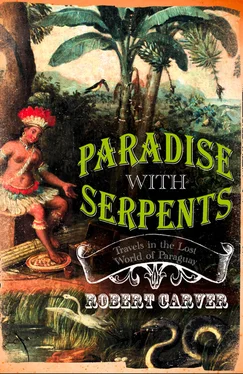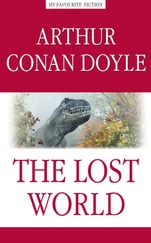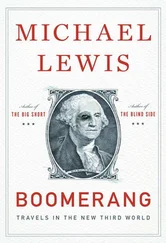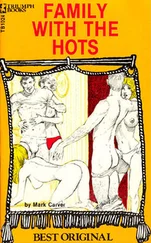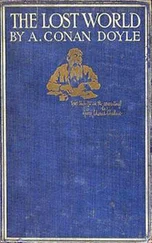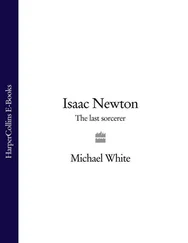Alejandro had been educated at an Argentine English-style Public School outside BA and his flawless English had cadences of the British upper classes of the 1950s. He said ‘crawse’ for ‘cross’, and his slang was dated, copied from the émigré masters, themselves products of the 1950s. This gave him the strange aura of being a contemporary of mine: he was young enough to be my son, almost my grandson – yet he spoke in much the way I had myself when I was about 12 or 13, before the 1960s really got going, and posh accents became a liability in swinging London.
‘What exactly are you going to do when you get to Europe?’ I asked him. I tried to imagine him among the pierced noses and glottal stops of the postmodern, multicultural, know-nothing estuary English.
‘Live,’ he replied with fervour. ‘It’s something you can’t do outside Europe. It is all pretend here, in case you haven’t noticed, pretend Europe, pretend USA. Everything that has been brought in from Europe has been misunderstood and misapplied. These ridiculous fake palazzi in the jungle put up by naked savages under the slave driver’s whip. I mean Solano López’s absurd fixation with Napoleon and imperial architecture – you know his grandfather, López’s I mean – was a mulatto bootblack on the streets of Asunción, of negro and Guayaki descent. He had no Spanish or Guarani blood, which is why he had no compunction in slaughtering all the Spanish and Guarani Paraguayans. The Guayaki and the Guarani loathed each other from pre-Spanish days. You see, a mestizo has to prove himself by doing down the white Creole – just look at Juan Perón. Francia, the first dictator here, was another mestizo . He forbade whites from marrying other whites, by law. Remember, this was the early 19th century when whites ruled the whole “civilized” world, and certainly the whole of South America. The mestizo on the rise, typically, joins the army, dons a colourful, picturesque uniform of a style obsolete in Europe by some decades, preaches uplift for the Indians and downfall for the white elite, makes a coup d’état , bankrupts the economy, ruins the country, persecutes and tortures everyone, declares war on the world, particularly the Catholic Church and the USA, and finally goes down in a welter of blood and chaos.
‘Francia avoided the latter because he was too paranoid and too mean to go to war. He just locked Paraguay in a prison for forty years instead – the anal retentive tyrant, the first truly modern totalitarian ruler, with secret police, torture chambers and the rest. Juan Perón in Argentina was the same type, a part-Indian whose mother was so dark she couldn’t be acknowledged in public. It’s part of the Argentine fantasy that there are no “natives” in the country, only aspirant Parisians and Londoners, though these are better dressed and sexier. In my grandfather’s day, among the English of BA, they always spoke of “Johnny Sunday”. Perón’s first names were Juan Domingo, and it wasn’t safe even to mention his proper name openly. When he was kicked out they found he had stolen US$500 million from the treasury alone. Solano López robbed the whole of Paraguay blind, stealing everything there was, including the jewels on the religious statues, replacing them with paste. Most of it got lost in his final retreat, but he did manage to transfer some of it out via Madame Lynch and the US and French consuls, through the Allied blockade, and so get it to Europe. His “heroic” death at Cêrro Corá was a mistake. He’d miscalculated. He was on his way to the Bolivian border and thought he was a full day ahead of his pursuers, which would have allowed him to get clean away. He would have ended up being fêted in Paris as a nationalist hero in exile, a sort of pre-Bokassa figure, complete with diamonds and crown.’
Alejandro lit another cigarette and motioned to the waiter for yet another beer. He had the most jaundiced view of Paraguay in particular and South America in general of anyone I had yet met in the country. In Europe, among expatriate South Americans, such views were more common; the exiles had left for a life abroad because they had such a low opinion of their homelands. It was interesting to listen to this abrasive and critical version of local history, to compare it with the bombastic nationalism of official Colorado propaganda which I got from other sources: you could always chose your national narrative in Paraguay.
‘Had Stroessner and Perón met?’ I asked.
‘Oh, yes – when Perón was overthrown Alfie was just starting out as a Junior-Jim dictator. He sent one of those smart, blackhulled fascist-era Italian gunboats that are moored opposite the palace down the river to BA to collect Perón, who’d taken refuge in the Paraguayan Embassy. Perón was well on his way down the usual mestizo war-against-the-world track when the air force had enough of him and bombed him out of his own palace. I think the navy were involved, too. He’d opened hostilities against the Catholic Church – like Francia did here – and was about to close the cathedral in BA and turn it into a workers’ playground. Every South American populist leader is potentially Tupac Amaru, the Inca noble who revolted against the Spanish in the 18th century. They want to bring down the house around them as they fall. Although they have absorbed all the French, Spanish and English customs, uniforms and ideologies, superficially at least, they remain spiritually Indian – that is, in revolt against the European way, while being besotted with the outward show of gringo style. It’s the latino paradox. They love us and hate us, and end up hating themselves for having absorbed so much of us. The Brazilian literary movement of the 1920s and 1930s called the antropofagos had a saying that they “ate a Frenchman for breakfast every day”. It was a reference to the Tupi-Guarani traditional cannibalism which the Europeans found so distressing when they arrived, on account of resurrection being made so complicated and difficult if people were eating each other all the time. I’ve never actually seen a direct prohibition on cannibalism in the Bible, mind you, have you? It’s kind of subsumed in the love-your-neighbour guff, I guess. There’s a strain in South American life that would like to undo the Conquest completely. It’s much the same in Africa, which South America resembles far more than most Europeans realize. Bokassa, Idi Amin and Mobutu could all have been South Americans, easily – the uniforms, the mania, the corruption, torture and confusion. The cross-cultural derangement is there, you see, on both sides of the Atlantic. King Lear with a colour chip and a culture chip, one on each shoulder.’
It was Alejandro who advised me to make a pilgrimage to see the British Ambassador. I asked him why. It seemed such a curious mission to undertake.
‘Because ambassadors have an unusually high profile in this country. Paraguay is right off the beaten track, the Gringo Trail, which you’ll have heard of, does not pass through here, as it’s too dangerous and not romantic enough, no native ruins and no McDonald’s. So few foreigners of note ever come here – de Gaulle was the first head of state ever to do so, by the way – that the foreigner is wildly overglamorized, and certain ambassadors act almost as vice-regents, deferred to by the governments which are always lacking in self-confidence and savoir-faire, not to mention credibility. In particular the ambassadors of the USA, Great Britain and France exercise great influence and add lustre to the shabby local political scene. These are countries important to Paraguay. The country was so nearly snuffed out by the War of the Triple Alliance, that Paraguayans do not trust either Argentinians or Brazilians. Good, cordial relations with these three most powerful states, who could stop any potential neighbour aggression, are very important here. You know that during the Falklands War, thousands of Paraguayans rang up the British Embassy offering to fight the Argentinians on the British side? What made it even richer was that the woman answering the Embassy switchboard was an Argentinian! ¡Ole! But seriously, if you ever found yourself in difficulties in Paraguay – and that is not hard to do at all – then knowing your Ambassador could prove very useful.’
Читать дальше
